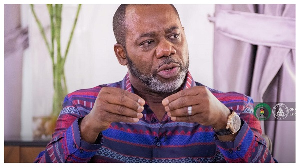Age cheating in global football has been a raging issue for a very long time.
The topic has recently been resurrected in the wake of the CIES Football Observatory Monthly Report for January 2016 that cast doubts over the real ages of players used by Nigeria, Ghana and Cameroun in their senior National teams in 2015.
Although the report by the Switzerland-based Football Observatory rightly identified the three African countries named above as using on the average the youngest players in 2015 among 50 sampled A National Teams across the globe, its comments that “however, this result must be analysed carefully insofar as footballers born in Africa tend to be older than they claim to be,” seem to have taken the headlines across many media platforms, not only in the three countries, but over the Continent of Africa and beyond.
Falsification of ages of footballers in order for them to meet age requirements in competitions and for other reasons is real and the issue has been a bother for many African Confederations. The situation has hampered the long term development of most talents from Africa who had hitherto dazzled the World at World Youth Competitions.
However the menace is not peculiar to Africa, and that point need to be made, loud and clear.
In the run up to the 2008 Asian Under-16 Championship for example, the Asian Football Confederation had reasons to eject DPR Korea, Tajikistan and Iraq from the Championship because believed these countries have used over-aged players in their qualifying games. Yemen was also ejected from the Tournament for fielding an over-aged player.
One can also recall the famous “Cachirules” scandal that saw all of Mexico’s National Teams being banned for two years by FIFA in 1988 for fielding several over-aged players in their National Under-20 Team.
In November 2006, a Brazilian Disciplinary Tribunal banned former Brazilian World Youth Cup Winner Carlos Alberto from football for 360 days for falsifying his date of birth to cut five years off his real age. The case of former Brazil and Real Madrid Coach, Vanderlei Luxemburgo who reduced his age by three years can also be cited.
The controversy about Chelsea and Spain’s striker Diego Costa’s real age might have gone down but it is certainly not completely forgotten. In 2014, team mate Eden Hazard was quoted as saying that even though Costa claimed to be 25 years then, he wasn’t sure if that was true. "He looks old, I think he’s old.
He is 25 but I don’t know if it is true", the Belgian playmaker was quoted as saying.
It is no secret that the problem of “age cheating in football” exists in Africa with some African countries and teams being sanctioned in the past.
The introduction of the MRI scan in FIFA and Africa to ascertain the real ages of Youth players has greatly helped in arresting the situation to a very large extent. However, any report that seems to use that as basis for discounting positive attributes of African teams must also be quick to add that the problem is not necessarily peculiar to the continent.
Sports Features of Monday, 25 January 2016
Source: ghanasoccernet.com

















